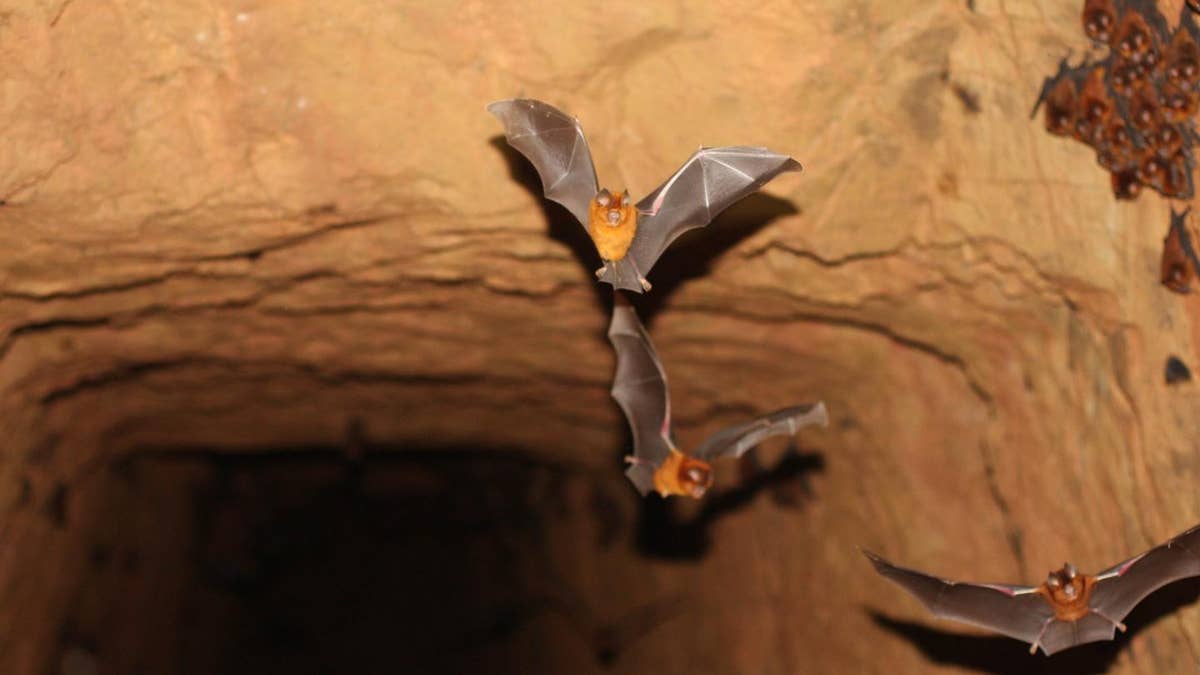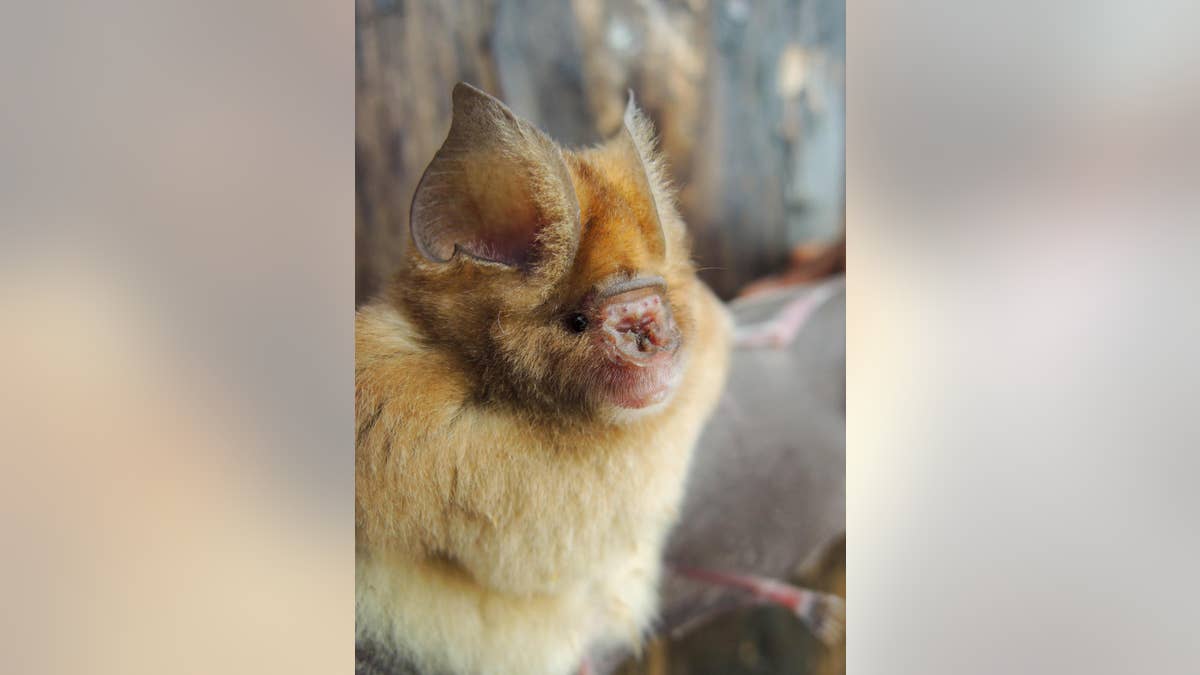What is a pangolin?
FoxNews.com: Will this creature go extinct before most people know it exists?
Get all the latest news on coronavirus and more delivered daily to your inbox. Sign up here.
New bat species, described as “cousins” of the bats linked to the coronavirus, have been discovered by researchers in Africa.
Researchers described at least four new species of African leaf-nosed bats, according to a paper published in the journal ZooKeys. The bats are “cousins” of the horseshoe bats identified as hosts for the novel coronavirus.
The coronavirus first emerged in December in the Chinese city of Wuhan. While scientists have not yet worked out how exactly the novel coronavirus first infected people, there is evidence that it originated in bats, which spread to another animal, possibly a pangolin, at a “wet market” in Wuhan.
PANGOLINS CAN CARRY CORONAVIRUS-RELATED STRAINS, SCIENTISTS SAY
"With COVID-19, we have a virus that's running amok in the human population. It originated in a horseshoe bat in China. There are 25 or 30 species of horseshoe bats in China, and no one can determine which one was involved. We owe it to ourselves to learn more about them and their relatives," said Bruce Patterson, the Field Museum's MacArthur curator of mammals and the paper's lead author in a statement.

Members of the new bat species. (B.D. Patterson, Field Museum)
Working with Kenya's Maasai Mara University, the National Museums of Kenya and the Field Museum, researchers undertook a genetic study of leaf-nosed bats in museum specimens around the world. The specimens had been collected in Africa in the last few decades, they said.
“In several cases, supposedly widespread species proved to be several genetically distinct species that simply looked alike — new species hidden in plain sight,” they explained in the statement. “The genetic research indicates at least four new and undescribed species of bats; these new species don't have official names yet, but they give us a glimpse at how much we still have to learn about Africa's bats.”
The new species didn’t play a part in the coronavirus pandemic, but the researchers note that their sister family of horseshoe bats did.
THIRD COUGAR CAPTURED AMID CITY'S CORONAVIRUS LOCKDOWN
While all animals carry viruses, bats seem particularly good at passing them on to humans, possibly because of their ability to fly and their tendency to live together in large colonies. "Because they huddle together and take care of each other, it doesn't take long for a pathogen to get passed from one end of the colony to the other," Patterson said in the statement.

Experts found that Hipposideros caffer (Sundevall's leaf-nosed bat) consists of eight distinct lineages; three of which (including this bat) appear to be new to science. (B.D. Patterson, Field Museum)
With high metabolisms and strong immune systems, bats’ DNA is good at repairing itself, the researchers say, which means that they can harbor disease agents without getting sick themselves. “That same dose can be harmful to humans who come into contact with the bats,” they say in the statement.
The discovery of the new species of bats, therefore, increases our knowledge of the mammals and their potential role in future outbreaks. "Leaf-nosed bats carry coronaviruses — not the strain that's affecting humans right now, but this is certainly not the last time a virus will be transmitted from a wild mammal to humans," said Terry Demos, a post-doctoral researcher in Patterson's lab and a principal author of the paper. "If we have better knowledge of what these bats are, we'll be better prepared if that happens."
VULNERABLE SEA TURTLES FLOURISHING DURING CORONAVIRUS RESTRICTIONS IN FLORIDA
Bats’ role in transferring the virus that causes COVID-19 is under intense scrutiny.
“A species of Horseshoe Bat is currently the principal suspect,” explained the World Bank in a recent blog post. “The bat likely transmitted the virus to an intermediary host, with an early theory pointing at pangolins, the scaly anteater illegally traded for their meat and scales which are then used for their apparent medicinal value.”
In a separate study, scientists identified coronavirus-related strains in Malayan pangolins seized during anti-smuggling operations in southern China.
Another recent study revealed the discovery of six new coronaviruses in bats in Myanmar. The viruses aren't believed to be related to SARS-CoV-2, severe acute respiratory syndrome (SARS) or Middle East respiratory syndrome (MERS), according to the research, which is published in the journal PLOS ONE.
CLICK HERE FOR COMPLETE CORONAVIRUS COVERAGE
CLICK HERE TO GET THE FOX NEWS APP
As of Wednesday afternoon, more than 2.59 million coronavirus cases have been diagnosed worldwide, at least 826,248 of which are in the U.S. The disease has accounted for approximately 180,784 deaths around the world, including at least 45,075 people in the U.S.
Fox News’ Greg Norman and the Associated Press contributed to this article. Follow James Rogers on Twitter @jamesjrogers









































